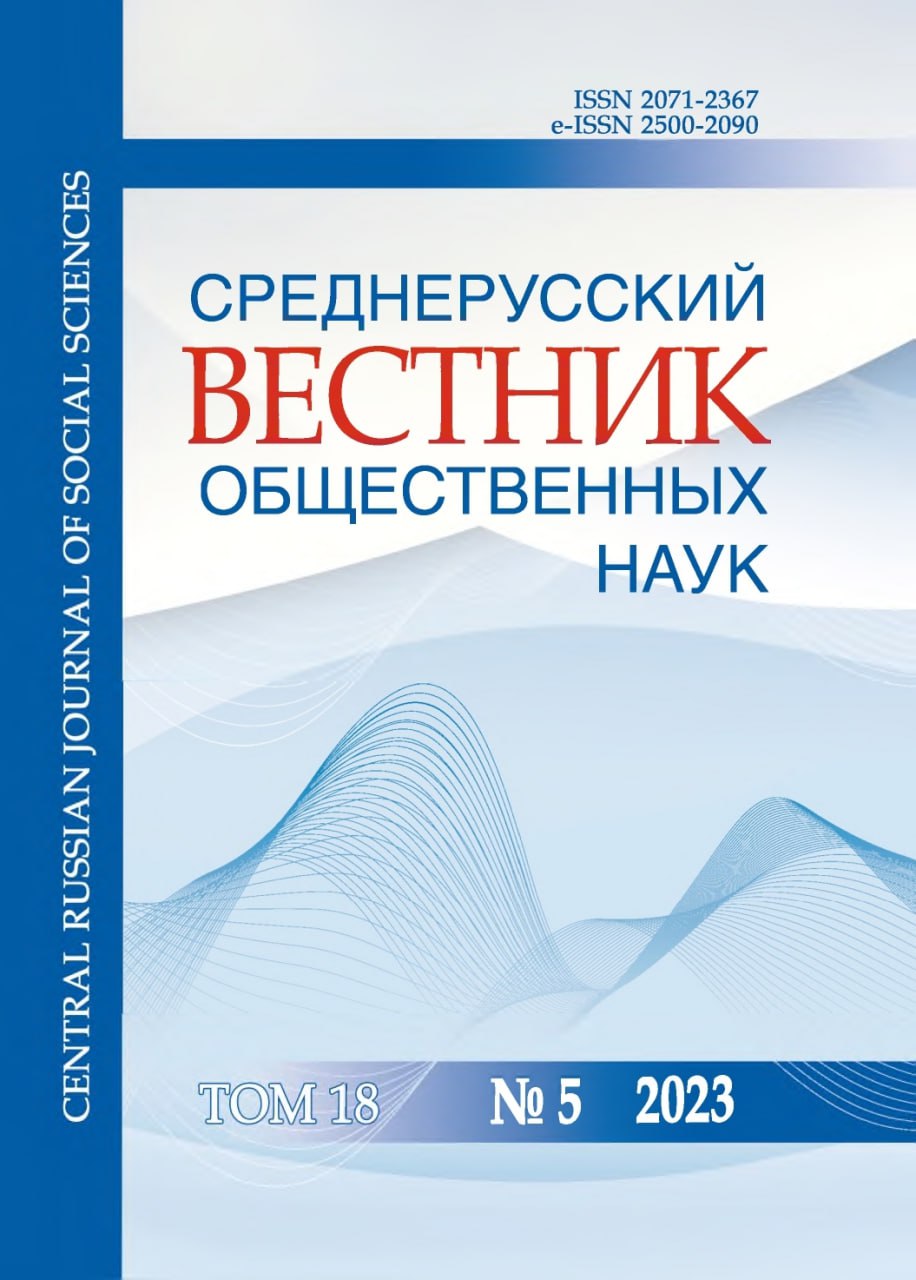Государственные информационные системы в сфере образования в условиях Индустрии 4.0
DOI: 10.22394/2071-2367-2023-18-5-192-209 EDN: QYPUCD
Ключевые слова:
государственные информационные системы, образование, человеческие ресурсыАннотация
На сегодняшний день остро стоит проблема интеграции информационных систем в различные государственные и гражданские институты, в том числе в такой стратегически важный сектор, как образование. В свою очередь, данная проблема характеризуется прежде всего тем, что образование, как и все остальные сектора экономики и человеческой жизнедеятельности, меняется под влиянием веяний нового технологического уклада и новой промышленной революции – Индустрии 4.0. С каждым годом появляется все большая вариация применения инновационных технологий, которые стали для нас неотъемлемой частью жизни, происходят технологические открытия, которые уже в ближайшем будущем смогут кардинально изменить привычный нам мир. Российская система образования, как и абсолютное большинство систем образования других стран, должна адаптироваться к новой цифровой эпохе. Именно государственная информационная система образования будет являться необходимым фундаментом построения нового уровня образования, которое соответствует вызовам и возможностям Индустрии 4.0. Цель данной статьи заключается в анализе роли государственных информационных систем как с точки зрения законодательства РФ, так и с точки зрения общепринятого мирового подхода. Методология исследования: анализ отчетов и различных работ специалистов WEF, ряда отечественных и зарубежных авторов в области технологий и информационных систем, составляющих основу современных и перспективных информационных систем в сфере образования.
В результате работы автор характеризует будущий облик системы образования на основе собственной точки зрения и рамочной структуры «Образование 4.0», которые будут лежать в основе будущих систем образования, описывает основополагающую роль государственных информационных систем в новых реалиях.
Библиографические ссылки
Алексеенко В.В. Нормативное обеспечение современного этапа информатизации образования // Вестник Омского государственного педагогического университета. Гуманитарные исследования. – 2018. – № 2 (19). – URL: https://cyberleninka.ru/article/n/normativnoe-obespechenie-sovremennogo-etapa-informatizatsii-obrazovaniya (дата обращения: 03.10.2023).
Грищенко В.А. Влияние цифровой трансформации на изменение образовательной системы // Образовательные ресурсы и технологии. – 2023. – № 2 (43). – URL: https://cyberleninka.ru/article/n/vliyanie-tsifrovoy-transformatsii-na-izmenenie-obrazovatelnoy-sistemy (дата обращения: 14.09.2023).
Коровникова Н.А. Искусственный интеллект в образовательном пространстве: проблемы и перспективы // Социальные новации и социальные науки. – 2021. – № 2. – С. 98–113.
Кузьмин П.В. Точка бифуркации в развитии дополнительного профессионального образования в условиях цифровых макросистем // Вестник Московского университета. Серия 20. Педагогическое образование. – 2023. – № 2. – URL: https://cyberleninka.ru/article/n/tochka-bifurkatsii-v-razvitii-dopolnitelnogo-professionalnogo-obrazovaniya-v-usloviyah-tsifrovyh-makrosistem (дата обращения: 01.10.2023).
Мальсагов Б.С. Анализ направлений развития и применения компьютерных информационных технологий // Региональная и отраслевая экономика. – 2023. – № 1. – URL: https://cyberleninka.ru/article/n/analiz-napravleniy-razvitiya-i-primeneniya-kompyuternyh-informatsionnyh-tehnologiy (дата обращения: 03.10.2023).
Mark J. Education Management Information System (EMIS) and Its Implications to Educational Policy: A Mini-Review International journal of multidisciplinary: applied business and education research 2022, Vol. 3, No. 8, 1389–1398 http://dx.doi.org/10.11594/ijmaber.03.08.01.
World Economic Forum, “Catalyzing Education 4.0,” 2022 https://www3.weforum.org/docs/WEF_Catalysing_Education_4.0_2022.pdf.
Defining Education 4.0: A Taxonomy for the Future of Learning WEF_Defining_Education_4.0_2023.pdf (weforum.org).
Sana Moid Education 4.0: Future of Learning With Disruptive Tech-nologies. Promoting Inclusive Growth in the Fourth Industrial Revolution. DOI: 10.4018/978-1-7998-4882-0.ch007.
Moraes E. Baldo, K., Liane F. More Integration of Industry 4.0 tech-nologies with Education 4.0: advantages for improvements in learning Interactive technology and smart education, 11 May 2022.
UNESCO UIS [Электронный ресурс]. – URL: https://uis.unesco.org/ (дата обращения: 24.09.2023).
Alekseenko, V.V. (2018) Normativnoe obespechenie sovremennogo etapa informatizatsii obrazovaniia [Regulatory support of the modern stage of informatization of education]// Vestnik Omskogo gosudarstvennogo pedagogicheskogo universiteta. Gumanitarnye issledovaniia. [Journal of the Omsk State Pedagogical University. Humani-ties studies]. – №2 (19). – URL: https://cyberleninka.ru/article/n/normativnoe-obespechenie-sovremennogo-etapa-informatizatsii-obrazovaniya (data obrashcheniia: 03.08.2023). (In Russ.)
Grishchenko, V.A. (2023) Vliianie tsifrovoi transformatsii na izmenenie obrazovatel'noi sistemy [The influence of digital transfor-mation on changes in the educational system] // [Obrazovatel'nye resursy i tekhnologii Educational resources and technologies]. – №2(43). – URL: https://cyberleninka.ru/article/n/vliyanie-tsifrovoy-transformatsii-na-izmenenie-obrazovatelnoy-sistemy (data obrashcheniia: 14.09.2023).
(In Russ.)
Korovnikova, N.A. (2021) Iskusstvennyi intellekt v obrazovatel'nom prostranstve: problemy i perspektivy [Artificial intelligence in the educa-tional space: problems and prospects] // Sotsial'nye novatsii i sotsial'nye nauki [Social innovations and Social Sciences]. – №2. – P. 98–113.
(In Russ.)
Kuz'min, P.V. (2023) Tochka bifurkatsii v razvitii dopolnitel'nogo professional'nogo obrazovaniia v usloviiakh tsifrovykh makrosistem
[Bifurcation point in the development of additional professional education in the context of digital macrosystems] // Vestnik Moskovskogo universiteta. Seriia 20. Pedagogicheskoe obrazovanie // [Journal of Mos-cow University]. –№2. – URL: https://cyberleninka.ru/article/n/tochka-bifurkatsii-v-razvitii-dopolnitelnogo-professionalnogo-obrazovaniya-v-usloviyah-tsifrovyh-makrosistem (data obrashcheniia: 01.08.2023).
(In Russ.)
Mal'sagov, B.S. (2023) Analiz napravlenii razvitiia i primeneniia komp'iuternykh informatsionnykh tekhnologii [Analysis of directions of development and application of computer information technologies]. // Regional'naia i otraslevaia ekonomika. [Regional and industrial
economics]. – №1. – URL: https://cyberleninka.ru/article/n/analiz-napravleniy-razvitiya-i-primeneniya-kompyuternyh-informatsionnyh-tehnologiy (data obrashcheniia: 03.08.2023). (In Russ.)

Загрузки
Опубликован
Как цитировать
Выпуск
Раздел
Лицензия
Copyright (c) 2023 Липовенко Андрей Сергеевич Греков Игорь Евгеньевич

Это произведение доступно по лицензии Creative Commons «Attribution-NonCommercial» («Атрибуция — Некоммерческое использование») 4.0 Всемирная.



